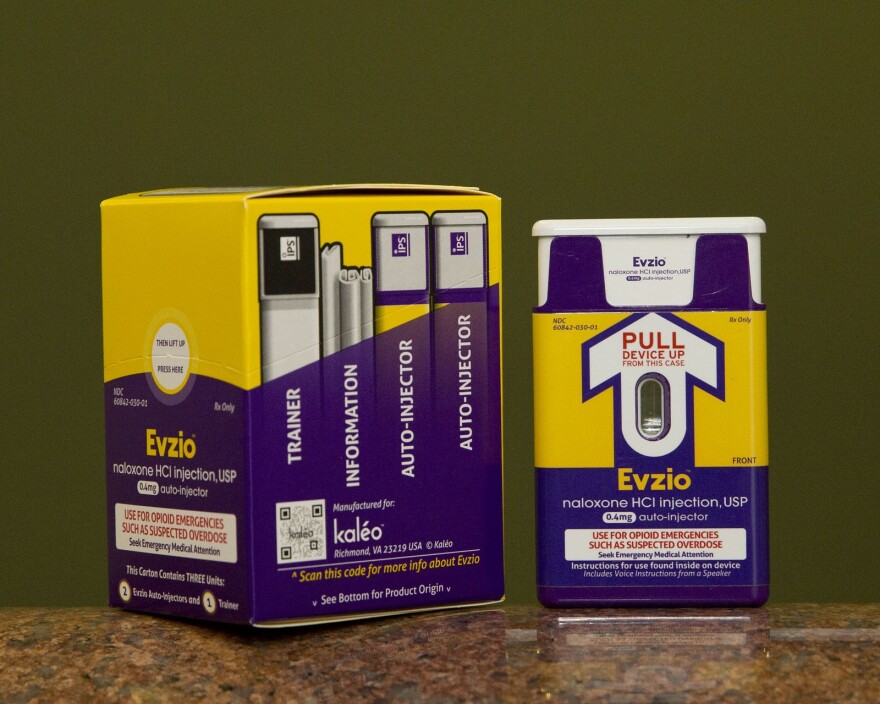Six conservation officers in the Indiana Department of Natural Resources have started carrying the overdose-intervention drug naloxone.
The move serves as the latest illustration of the drug’s increasing availability, which blocks the effects of opioids such as heroin, morphine and oxycodone.
Tyler Brock is a conservation officer for the agency’s Law Enforcement District 10, where the officers received training on how to administer the drug.
“We patrol mostly rural areas out in the county,” he says, “but we do pass through the city. We never know where we’re going to be. When a call goes out there’s a good chance we could be the closest law enforcement.”
He says in the past, he’s been in situations where he could have used naloxone.
“Personally, I’ve had an experience where I’ve responded to these calls,” he says. “You want to be able to do something, but you don’t have the tools to do it, so it’s kind of a helpless feeling.”
Naloxone has been around since the 1970s, but has only recently started to become available to people working outside of hospitals and ambulances.
Daniel Raymond, Policy Director for the Harm Reduction Coalition, says naloxone used to be the purview of medical professionals, but it’s becoming increasingly available to everyone.
“The trend in recent years is thinking about all the different people who might be in the position to witness and respond to an overdose,” he says.
Raymond says he envisions a future in which naloxone is as common as a defibrillator or epi-pen.
“The idea is you don’t want to be calling 911 and losing precious time before somebody shows up who can administer a medication that is simple to use and gets results instantly.”
The state’s government has made increasing availability a priority. The legislature approved allowing first responders and EMTs to use the naloxone in 2014, and earlier this year, Attorney General Greg Zoeller awarded 130 thousand dollars to state nonprofits to deliver the drug.
In March, Mike Pence signed a law required the state department of health to create a standing order for naloxone, which allows pharmacies to give it to anyone even if they don’t have a prescription.
Indiana University has announced officers on all its campuses will soon carry the drug.
Raymond says thanks to innovations that allow the drug to be administered through a nasal spray, it’s safer than ever for a layperson to use.
The drugs and training were donated by northwestern Indiana-based Fagen Pharmacy, the Porter County Community Foundation, Porter Regional Hospital and Indiana Conservation Officers.





